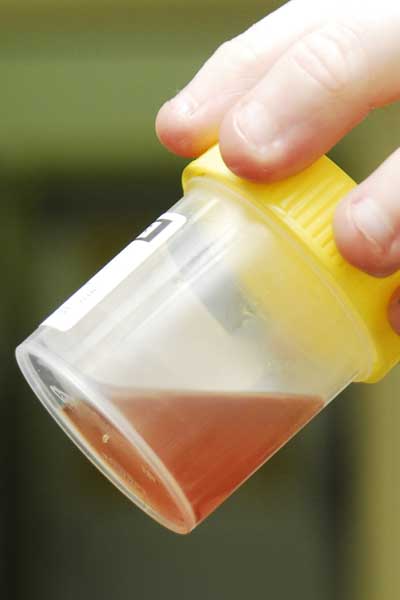Suzi Thomson (not related to interviewee Owen Thomson, although of all the blogs in the known universe, isn't it bizarro that two people with matching surnames were interviewed in the same week) worked with the University of Sydney to tailor a unique study program as she works toward a career in shelter management.
Tell us a bit about yourself?
In February '06 while I was living in Montreal during a year of aimless
travelling through North America, it simply dawned on me one evening that a
career in animal welfare was perfect for me. The sensation was both revelation
and a groaning 'duh'. I had always wanted to work with
animals (as a child I wanted to be a vet and as a teenager, a marine
biologist), but somehow I had lost that somewhere along the way. When I
came back to Australia later that year I first volunteered and then later
worked at the local shelter as an animal attendant. I loved that job even
though it was mostly about poo.
But I hated seeing animals put down that I felt were rehomed-able and I
was unimpressed by the attitudes of management (towards a lot of things). After
several months, I nearly quit, disheartened. Instead I decided that as I was
sure I could do better than they, and from that point on have been working
towards gaining skills I felt would be appropriate for a shelter manager.
You are interested in animal welfare. What about the welfare of animals
really fires you up?
Umm. J'accuse. I don't know. Honestly. Where do I begin? I probably
should just not begin.
The first offence I experienced was made by my fifth grade teacher
'correcting' us that grammatically animals are 'its' rather than 'he's’ and
'she's’. I'm still not over it (I am also, still really bad at grammar). The
place of animals as 'things' rather than 'beings'. The slow and begrudging
way which science and society have moved on this.
I find it absurd that Darwin's theory of evolution was taken up so
fervently but for so long the fact that this theory actually makes us a kind of
animal, sharing many attributes with other species, and they with us, was
glossed over.
That there has been a burden of proof to show that animals do possess
similar qualities to humans such as sensitivity to pain or emotion or
intelligence seems to be the default position. In light of Darwin's
theory, I cannot see why. The man himself said that we differ in degree
rather than in kind.
Even when these capacities in animals are accepted which they now mostly
are, we are still subject to rather offensive arguments the 'degree' of
capacity and the consequent 'value' of the animal in question, tied in with a
justification to harm. How many times must I hear that it is okay to do (some
degree of) harm an animal based on the fact that it is less intelligent than a
person? But ask if it's okay for an intelligent person to apply the same
(mis)treatment to a person of less intelligence and all of a sudden the
response changes. The principle involved in the question is the same. Superior
intelligence is either an excuse for mistreatment or it is not. In a logical
moral argument it cannot be applied contextually.
The excuses made about 'necessity' of use in, agriculture, medical
research and so forth. When a moral position is claimed that we must
(injuriously) test on animals to achieve medical advances to benefit people, I
get super tooshy-la-la. To hurt animals, who stand no chance of benefiting from
the testing which is performed upon them, to (prospectively) help a separate
(already privileged) group…how is that a moral argument? You hurt one group to
help out another. That's not moral, that's an 'ism'.
And it really offends me that people have the consumer choice to choose products
with very low levels of welfare. In short, everything offends me.
When you enrolled in your current program there wasn't anything that
really fit your requirements. How did you carve your current path and where is
it heading?
Yeah, there was no degree and also no clear path, so I have
attempted to make it up! I approached various universities enquiring about any
potential options. Most proved a dead end, but Clive Phillips at UQ was kind
and helpful, offering a potential honours program. However, after meeting Jann
Merchant (vet science post-grad coordinator at USyd) I eventually chose Sydney.
Thanks to her efforts to provide a degree program for my apparently obscure
chosen career path, I have managed to find a place in an excellent, broadranging degree at Sydney where I have basically been given the freedom to study
whatever interests me.
In terms of career moves in my attempts to 'construct' myself a path
towards shelter management, I have sought out professional skills I thought
were relevant. At the time I had decided to pursue it I was already working as
an animal attendant, but no-one learns much in these types of roles and so I
went off to qualify as a vet nurse to give me basic medical knowledge and
then went onto an administrative role (at Sydney Uni's Vet Teaching Hospital).
This has probably given me the qualifications for an assistant
shelter management position but these positions don't seem to turn up
much, although straight out management ones do. Slightly frustratingly, I
am now stuck in the notorious management paradox, where I need management
experience to get my first management job. To get over the hurdle, I'm now
considering applying for a volunteer position as a shelter manager overseas (such
as a 6 month stint at Thailand's Baan Unraak shelter) in order to get the
management experience I need.
So, I hope my current path is heading me towards shelter management…but
like other aspects of life, it's a bumpy road and it may have a fork or two in
it.
Can you tell us about any animals in your life (or experiences) that
influenced you to pursue this path?
Baby, I was born this way, just took me 25 years to figure it out.
Any suggestions as to how we could all do welfare better?
I think everyone knows something they could do better, just make the choice to do it, whatever seems
manageable. Start small, go from there.











